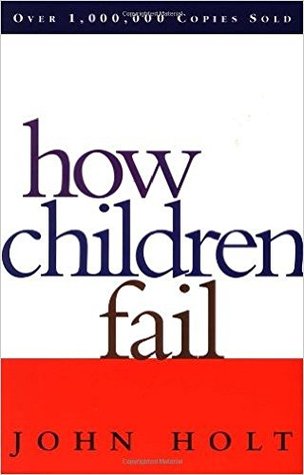More on this book
Kindle Notes & Highlights
If we look at children only to see whether they are doing what we want or don't want them to do, we are likely to miss all the things about them that are the most interesting and important.
Many people seem to think that the way to take care of children is to ask in any situation what is the most stupid and dangerous thing the children could possibly do, and then act as if they were sure to do it.
I was a successful student, yet now and then I have such nightmares myself. In mine I am always going to a class from which, without the slightest excuse, I have been absent for months. I know that I am hopelessly behind in the work, and that my long absence is going to get me in serious trouble, of what sort I am not sure. Yet 1 feel I cannot stay away any longer, I have to go.
We must not fool ourselves, as for years I fooled myself, into thinking that guiding children to answers by carefully chosen leading questions is in any important respect different from just telling them the answers in the first place.
The only answer that really sticks in a child's mind is the answer to a question that he asked or might ask of himself.
It is as true now as it was then that no matter what tests show, very little of what is taught in school is learned, very little of what is learned is remembered, and very little of what is remembered is used. The things we learn, remember, and use are the things we seek out or meet in the daily, serious, non-school parts of our lives.
We find ideal the kind of "good" children who are just enough afraid of us to do everything we want, without making us feel that fear of us is what is making them do it.
Since we can't know what knowledge will be most needed in the future, it is senseless to try to teach it in advance. Instead, we should try to turn out people who love learning so much and learn so well that they will be able to learn whatever needs to be learned.


